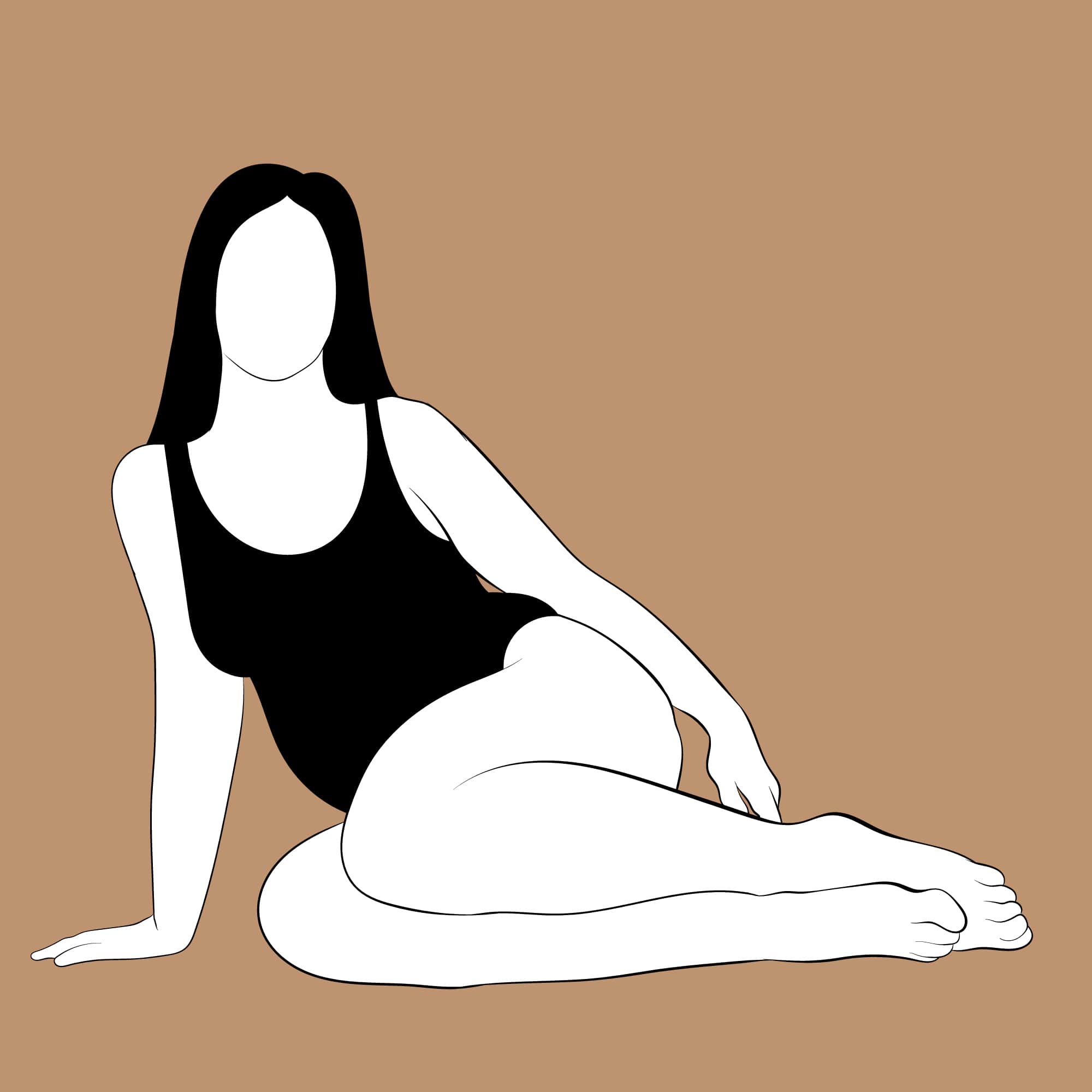Blog

Six ways to use nature to boost your mood
It’s Mental Health Awareness Week 2021 and we are so excited that this year’s theme is nature! Research shows that spending at least 120 minutes a week in nature is associated with good health and wellbeing (1), with recent evidence indicating a positive correlation between exposure to greenery and better mental health during the COVID-19 pandemic. (2)
Unfortunately, the complexities of life in the 21st century, combined with the past year’s challenges, have made it easy for us to disengage from the natural world surrounding us. Furthermore, there is evidence showing women experience more stress than men when away from nature. (3) Yet, inside all of us is a deep connection and attachment to Mother Earth, yearning to be discovered and unleashed. Read on for our six top tips to add more nature to your life for an improved mental state.
ONE: Start a daily ritual.
If you don’t have a daily ritual that involves going outside, it might be a great idea to introduce one and schedule it into your day. Firstly, spend some time thinking about what movement you enjoy most that can be done outdoors, whether that’s running, walking or cycling. It might even be reading or sitting in the grass and watching the clouds and trees above. Need some more inspiration? Check out this article for some ideas for moving mindfully.
Secondly, try to find a set time each day where you are free to spend some mindful minutes in nature. Whilst experiencing sunlight in the morning can be significant in strengthening our circadian rhythms and sleep patterns, outdoor lunchtime and evening breaks can be great to disconnect from work and unwind.
The next step is to try this out and work it up to a habit – it can feel more manageable to start small, so even with once or twice a week and building this up to a more regular practice if that is your goal. You can try to journal your thoughts and experiences to see how the time in nature made you feel – this could look as simple as a brief sentence before and after going outdoors. Of course, sometimes we may want a break from our routine, and that’s okay too.
TWO: Do indoor activities outdoors.
For the more spontaneous among us, why not do some of your ordinarily indoor tasks outdoors?
If you are lucky enough to have easy access to a garden, park, or another green space, taking some of your day-to-day activities there could undoubtedly add value to your wellbeing. Whether that might look like eating lunch, journaling, reading, or simply talking on the phone, you’ll be glad you got some fresh air and natural light.
In today’s world, we can often feel guilty for taking breaks and being away from our work and to-do lists, but pairing being outdoors with things you have to do anyway helps life feel a little more manageable whilst still bringing you the benefits of nature.
THREE: Enjoy the sunrise or sunset.
‘There’s a sunrise and a sunset every single day, and they’re absolutely free, so don’t miss them’ – Jo Walton.
The above quote comes to mind here and can resonate with almost all living creatures. Each morning and evening, our skies are painted in all kinds of gorgeous colours, and it can be a real blessing to experience. Like each day, sunrises and sunsets are never identical, and this can act as a gentle reminder that we, too, are not defined in one way, and our lives are experiencing change, movement, and growth all of the time.
Witnessing the sunrise or sunset may not always be doable year-round if you live in a country with distinctly different seasons and noticeable changes in daylight hours. However, when possible, it’s still a great excuse to go out and appreciate nature whilst making the most of ‘golden hour’ and snapping some epic photos, too!
FOUR: Mindfully prepare a delicious meal or drink.
It can be easy to forget that all of the wholesome, enriching food that fuels our amazing bodies comes from nature, too. The food we eat comes from all corners of the globe and will have needed careful conditions to grow well whilst remain vibrant and flavourful on its way from a seed to your supermarket.
Whether you’re serving up a shakshuka storm using an array of vegetables (like this one) or just brewing a coffee, you can reconnect with nature in your mealtimes by cooking consciously. Feel the ingredients you are using with your hands and heart, and think about the time and care it took to grow them, cultivate them, and bring them to you from potentially faraway regions of the world. Then, when eating your meal, you can savour and appreciate all of the delicious flavours created when all of these different gifts of nature come together.
FIVE: Take up an outdoorsy hobby or project.
Besides sports, there are so many different activities and hobbies you can take on which you can do outside. They allow us to spend quality time in nature without always realising it.
An obvious one is gardening, and you can even grow veggies and herbs that you enjoy cooking with as a spring and summer challenge. You could also try taking on an outdoor project that might benefit your area’s wildlife, such as building a bee hotel, birdhouse, or mini pond.
If you don’t have your own outdoor space or are a beginner at this, there are countless community farms and gardens that accept and train new volunteers, so it’s worth searching your area if this is something you are passionate about. Outdoor projects are a great way to reconnect with nature and offer rewarding outcomes that will have a long-term positive effect on the broader community and environment.
SIX: Bring nature inside.
We know it isn’t always easy to get outside, and if you’re based in the UK, you’ll know the weather is often far from ideal. So for days when it may really feel like a struggle, why not incorporate nature into your home?
The pandemic has seen a rise in the purchase of houseplants, which are shown to improve mental wellbeing as effectively as outdoor nature. (2) Houseplants can help to reduce anxiety and stress (4) whilst boosting concentration, mood, productivity, and memory. (5) It can feel rewarding to nurture and look after something and act as a reminder to give yourself more kindness and self-care. There are high and low maintenance houseplants, but all can add a beautiful aesthetic to your home whilst keeping air cleaner – perfect if you live in a big city. Just make sure that the houseplant(s) you choose is pet and child safe if you share your home with them.
You can also incorporate nature sounds into your home by opening windows to let in more outdoor sounds and maybe some morning birdsong. You can play your favourite nature sounds on YouTube or a mindfulness app such as Calm or Headspace whilst working or during an indoor yoga or meditation session. You can even choose to unwind by watching a soothing nature documentary whilst learning about the world around you.
We hope this article has filled you with inspiration and empowerment to get out there and enjoy the wonderful nature that awaits on your doorstep. Like many things, it’s easy for us to take an “all or nothing” approach with this, but remember even sparing 5 minutes in nature between tasks brings so many beautiful benefits and is absolutely worth it. And, as always, keep up all of the remarkable work you are doing for yourself.
Priya Chotai, BSc ANutr
EHL Team x
References
- White M.P., Alcock I., Grellier, J. et al. (2019). Spending at least 120 minutes a week in nature is associated with good health and wellbeing. Sci Rep 9, 7730. https://doi.org/10.1038/s41598-019-44097-3
- Dzhambov A, Lercher P, Browning M, Stoyanov D, Petrova N, Novakov S et al. (2021). Does greenery experienced indoors and outdoors provide an escape and support mental health during the COVID-19 quarantine?. Environmental Research [Internet]. [cited 12 May 2021];196:110420. Available from: https://www.sciencedirect.com/science/article/abs/pii/S0013935120313177
- Roe, J.J., C.W. Thompson, P.A. Aspinall, M.J. Brewer, E.I. Duff, D. Miller, R. Mitchell, and A. Clow. (2013). Green space and stress: Evidence from cortisol measures in deprived urban communities. Intl. J. Environ. Res. Public Health 10 (9): 4086–4103.
- Lee, M. S., Lee, J., Park, B. J., & Miyazaki, Y. (2015). Interaction with indoor plants may reduce psychological and physiological stress by suppressing autonomic nervous system activity in young adults: a randomised crossover study. Journal of physiological anthropology, 34(1), 21. https://doi.org/10.1186/s40101-015-0060-8
- White, M.P., S. Pahl, B.W. Wheeler, M.H. Depledge, and L.E. Fleming. (2017). Natural environments and subjective wellbeing: Different types of exposure are associated with different aspects of wellbeing. Health place 45: 77-84.














